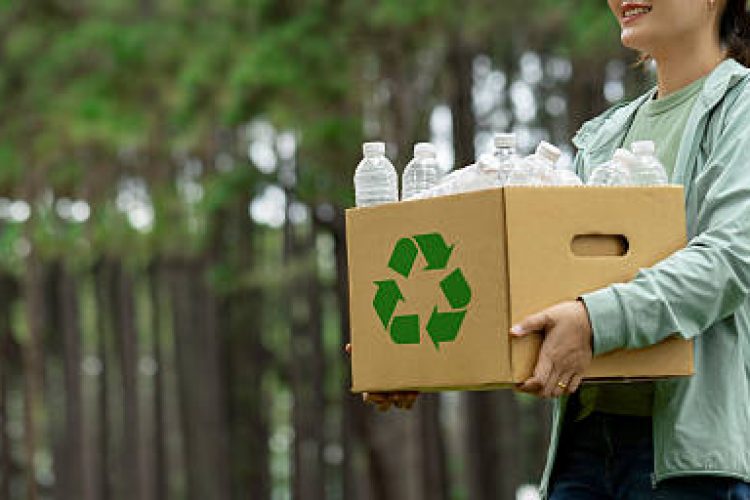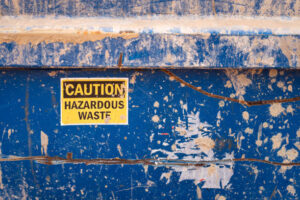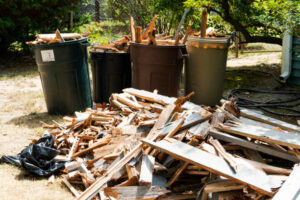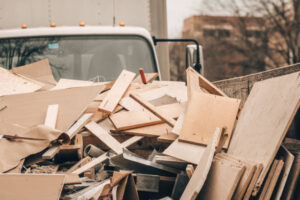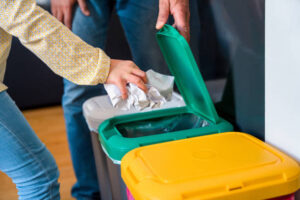In today’s environmentally conscious world, the way we handle unwanted items has never been more important. Junk removal presents a powerful opportunity to support green initiatives while decluttering your space responsibly. With proper planning and the right approach, you can transform your cleanup project into a meaningful contribution to environmental sustainability.
The Environmental Impact of Traditional Junk Disposal
Every year, Americans generate approximately 292.4 million tons of municipal solid waste, with over 50% ending up in landfills despite many items being recyclable or reusable. Traditional junk disposal methods contribute significantly to environmental problems including greenhouse gas emissions, resource depletion, and ecosystem disruption.
When waste decomposes in landfills, it produces methane—a greenhouse gas that’s 23 times more potent than carbon dioxide. Additionally, valuable materials like metals, plastics, and electronics are permanently lost when buried in landfills, requiring the extraction of virgin resources for new products.
What Is Green Junk Removal?
Green junk removal prioritizes environmental responsibility by focusing on the three R’s: Reduce, Reuse, and Recycle. Instead of sending everything to landfills, eco-friendly junk removal services carefully sort items to maximize diversion from waste streams.
Professional green junk removal companies typically achieve impressive diversion rates, with many recycling up to 75% of collected materials. This approach significantly reduces environmental impact while supporting the circular economy—a system that keeps materials in use for as long as possible rather than following the linear “take-make-dispose” model.
Key Benefits of Green Junk Removal
Environmental Advantages
Carbon Footprint Reduction: By diverting waste from landfills and supporting recycling programs, green junk removal helps reduce greenhouse gas emissions. The EPA estimates that recycling and composting prevented the release of approximately 186 million metric tons of carbon dioxide equivalent in 2018.
Resource Conservation: Recycling materials reduces the need for virgin resource extraction. For example, recycling just 10 plastic bottles saves enough energy to power a laptop for more than 25 hours.
Landfill Diversion: Effective waste diversion extends the lifespan of existing landfills and reduces the need for new disposal sites. Some facilities achieve diversion rates of 90% or higher, qualifying for “zero waste” certification.
Economic Benefits
Green junk removal creates significant economic value. The U.S. scrap recycling industry alone generated $117 billion in economic activity in 2022, supporting jobs and creating markets for recycled materials. Additionally, businesses can often save money on disposal fees by choosing services that emphasize recycling and donation over landfilling.
Community Impact
Many items collected through green junk removal programs are donated to local charities, schools, and non-profit organizations. This extends the useful life of products while supporting community members who might not otherwise afford these items.
Essential Green Junk Removal Strategies
1. Prioritize Donation and Reuse
Before disposing of any item, evaluate whether it could benefit someone else. Furniture in good condition, working appliances, and electronics can often find new homes through:
- Local charities and thrift stores
- Community centers and schools
- Online platforms for secondhand goods
- Homeless shelters and transitional housing programs
2. Maximize Recycling Opportunities
Different materials require specific recycling approaches:
Electronics (E-Waste): Electronic waste is one of the fastest-growing waste streams globally, but only about 20% is properly recycled. E-waste contains valuable materials like gold, silver, and copper, as well as hazardous substances that require careful handling.
Appliances: Many states mandate appliance recycling due to refrigerants and other materials that can harm the environment if not properly managed.
Construction Materials: Construction and demolition debris accounts for more than twice the volume of municipal solid waste, making proper sorting and recycling crucial for large projects.
Metals: Steel, aluminum, and copper are highly valuable recyclables that can be processed repeatedly without losing quality.
3. Proper Hazardous Waste Management
Certain items require special handling to prevent environmental contamination:
- Paint, chemicals, and automotive fluids
- Batteries (especially lithium-ion batteries from electronics)
- Fluorescent bulbs containing mercury
- Medical waste and pharmaceuticals
Never attempt to dispose of hazardous materials through regular trash collection. Instead, use specialized collection programs or certified disposal facilities.
4. Composting Organic Materials
Organic waste like yard trimmings and food scraps can be composted rather than landfilled. The EPA reports that Americans composted approximately 25 million tons of organic material in 2018, including 22.3 million tons of yard trimmings.
Choosing an Eco-Friendly Junk Removal Service
When selecting a junk removal company, ask about their environmental practices:
Diversion Rates: Look for companies that can demonstrate high percentages of materials diverted from landfills through recycling, donation, or reuse programs.
Certifications: Seek providers with environmental certifications or partnerships with recognized recycling organizations.
Transparency: Reputable companies should provide clear information about where your items will go and may even offer proof of recycling for tax records.
Local Partnerships: Companies that work with local charities, recycling centers, and waste-to-energy facilities often achieve better environmental outcomes.
DIY Green Junk Removal Tips
Planning Your Project
- Inventory Items: Create categories for donation, recycling, hazardous waste, and true garbage
- Research Local Resources: Identify nearby recycling centers, donation sites, and special collection programs
- Schedule Strategically: Time your cleanup around community collection events or charity pickup schedules
Sorting Best Practices
- Clean Items When Possible: Clean donations increase the likelihood of acceptance and reuse
- Remove Personal Data: Securely wipe electronic devices before disposal or donation
- Separate Materials: Keep different recyclables separate to maintain quality and processing efficiency
Transportation Considerations
- Consolidate Trips: Plan efficient routes to minimize transportation emissions
- Use Appropriate Vehicles: Ensure safe transport of all materials, especially hazardous items
- Partner with Neighbors: Coordinate neighborhood cleanups to maximize efficiency
The Future of Sustainable Junk Removal
The junk removal industry continues evolving toward greater sustainability. Emerging trends include:
Technology Integration: AI-powered sorting systems and mobile apps that connect users with recycling resources are making green disposal more accessible.
Circular Economy Growth: More businesses are embracing circular economy principles, creating markets for reclaimed materials and refurbished goods.
Policy Support: Government initiatives like the Infrastructure Investment and Jobs Act are investing billions in recycling infrastructure improvements.
Consumer Awareness: Growing environmental consciousness is driving demand for sustainable waste management options.
Making a Lasting Impact
Supporting green initiatives through junk removal extends far beyond a single cleanup project. By choosing sustainable disposal methods, you’re contributing to a larger movement toward environmental responsibility and resource conservation.
Every item diverted from a landfill, every donation made, and every material recycled represents a small but meaningful step toward a more sustainable future. When multiplied across communities and households, these individual actions create significant positive environmental impact.
Conclusion
Green junk removal offers a practical and impactful way to support environmental initiatives while managing unwanted items responsibly. By prioritizing donation, recycling, and proper disposal methods, you can significantly reduce your environmental footprint while supporting your community.
Whether you’re tackling a major cleanout or simply disposing of a few items, remember that every choice matters. With the right approach and resources, your junk removal project can become a meaningful contribution to environmental sustainability and community well-being.
The path to a cleaner, more sustainable future starts with individual actions. Make your next junk removal project count by choosing green alternatives that benefit both your space and the planet.

